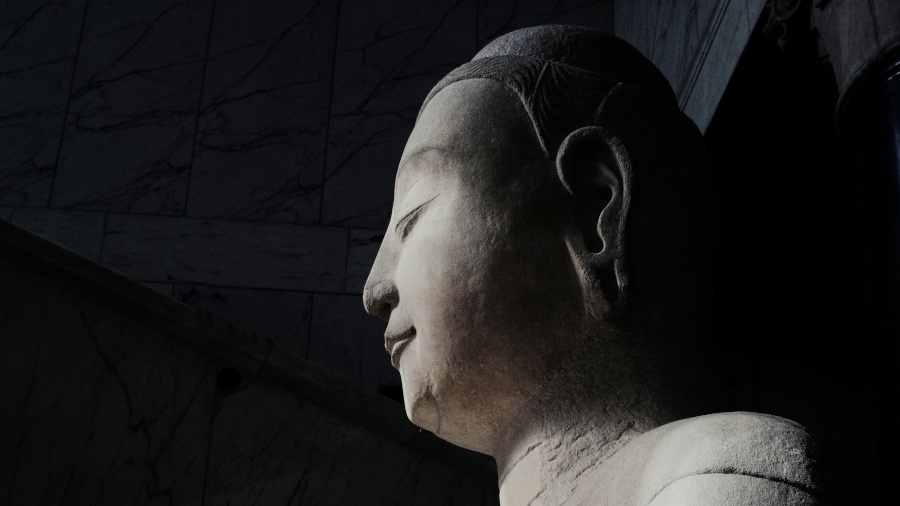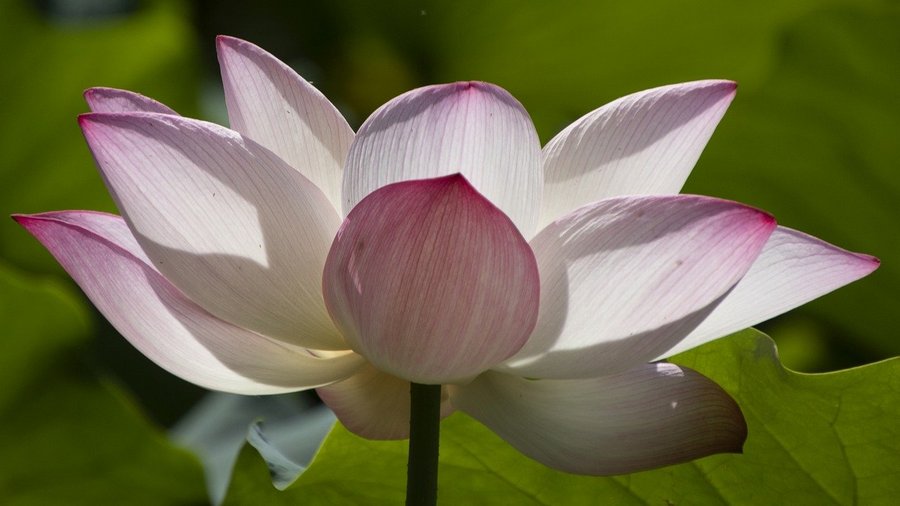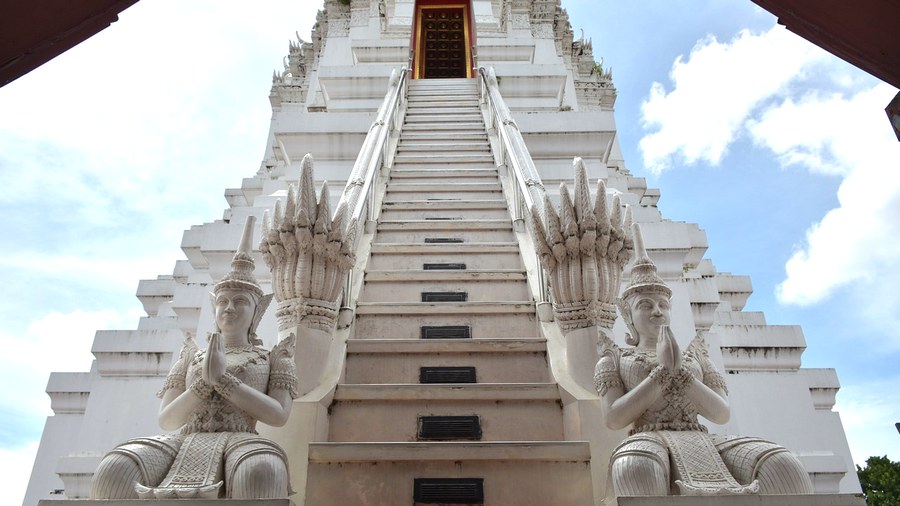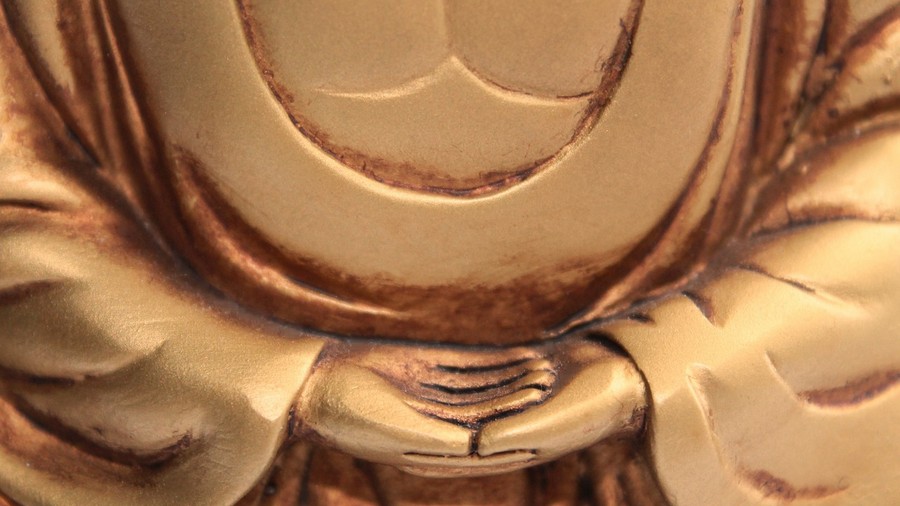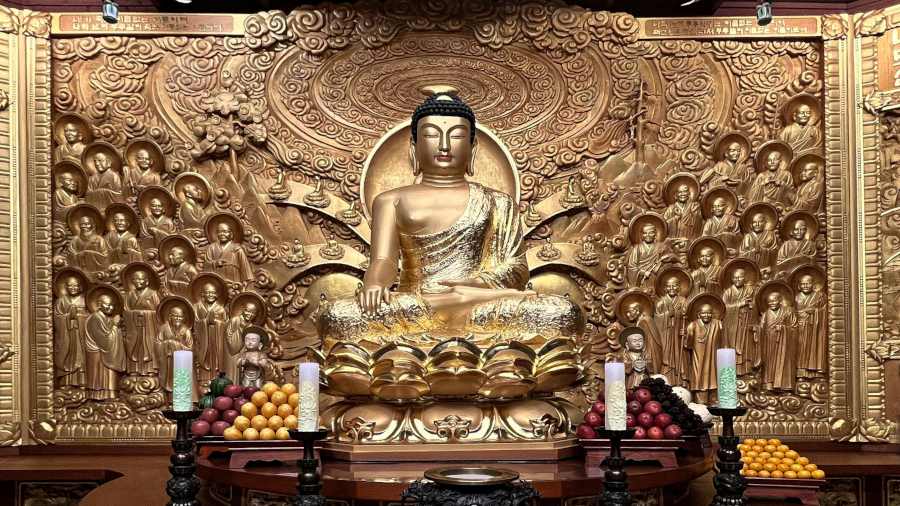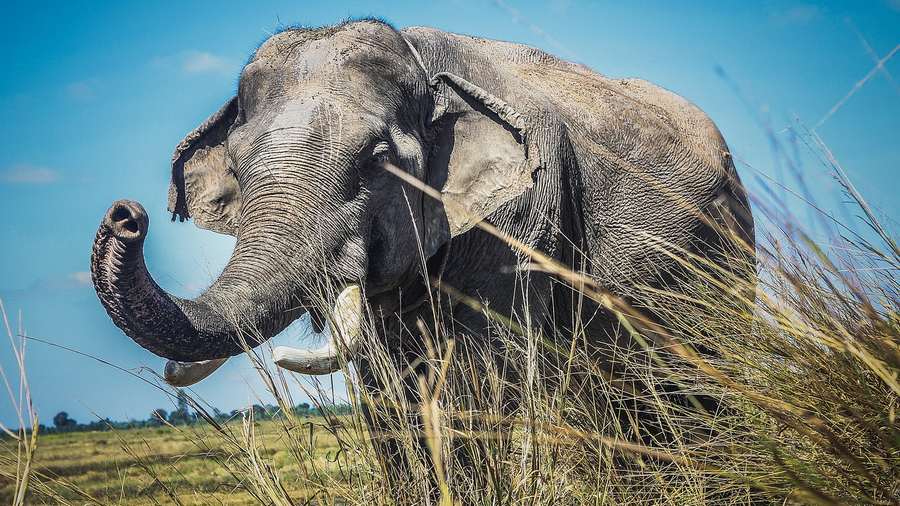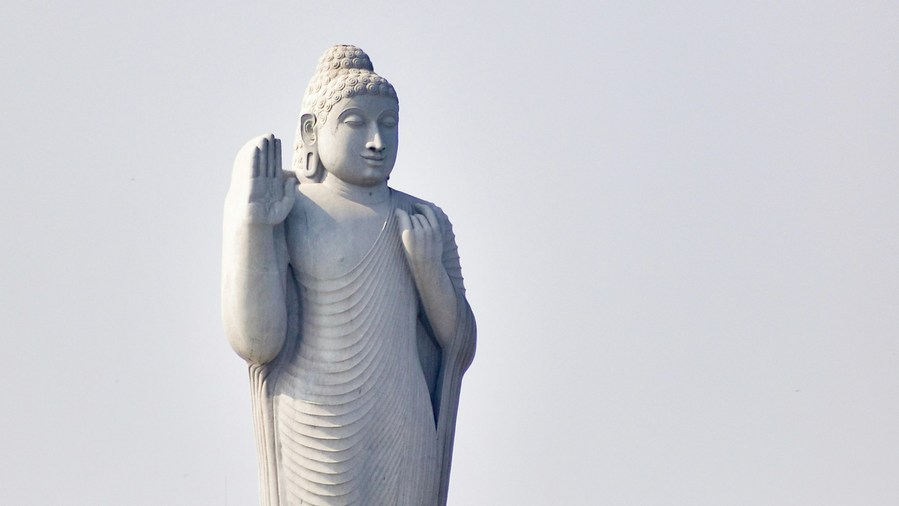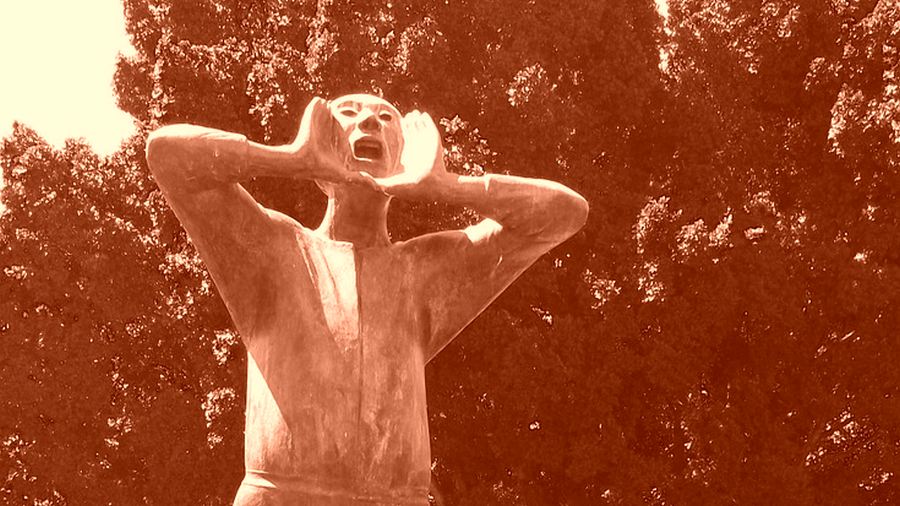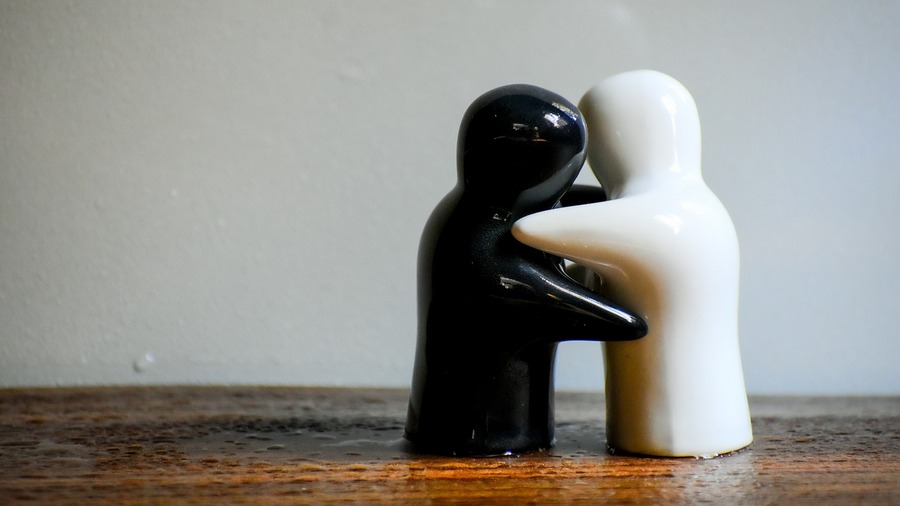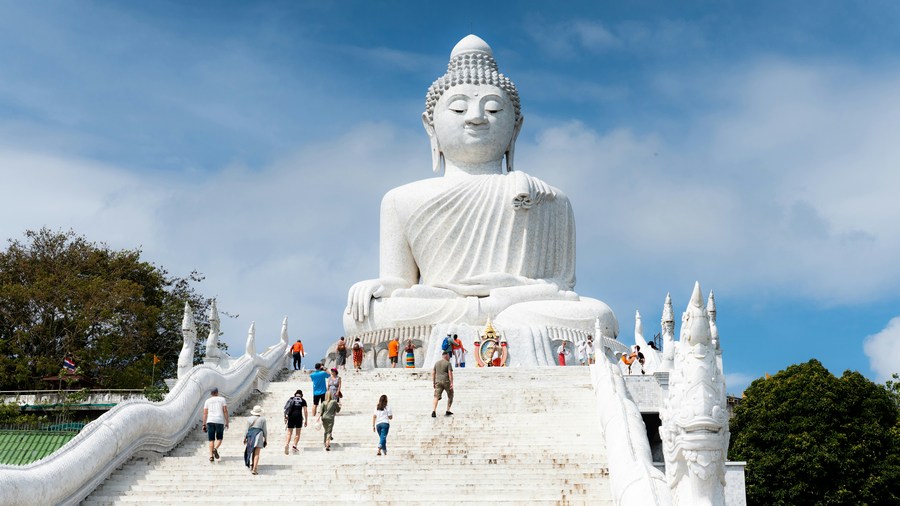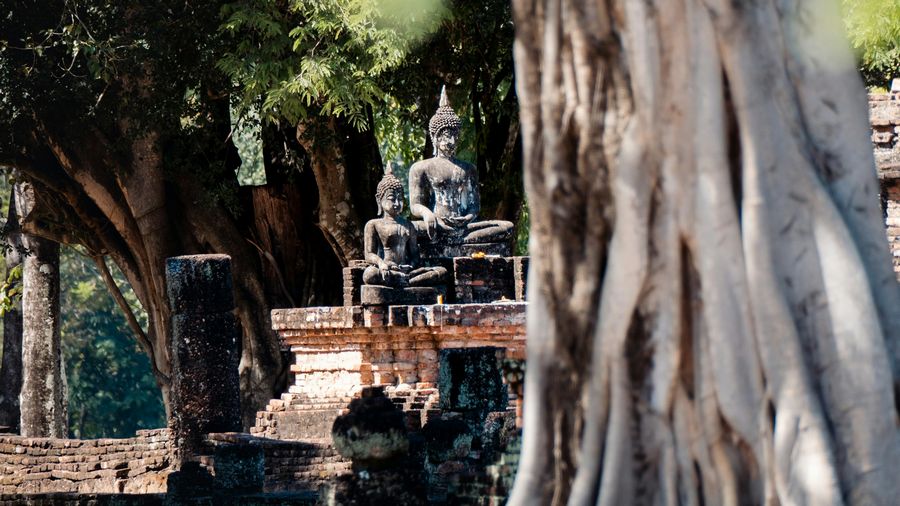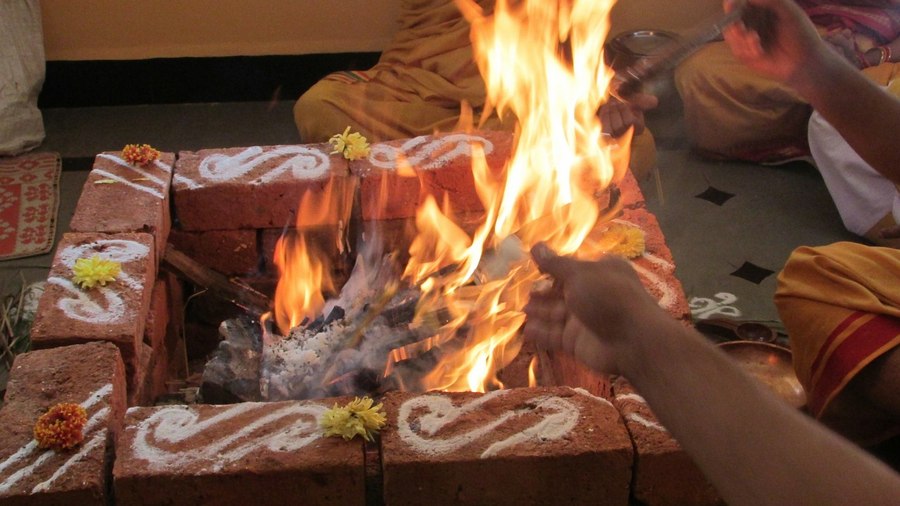347. Those who are obsessed with passion and have fallen into the flood of craving, are like a spider, caught in its own web. This, too, the wise cut off. In order to abandon all suffering, without any longing for sense pleasures, wise people become monks and nuns.
348. Let go of regret over the past, let go of dreaming over the future, and let go of clinging to the present. Go beyond existence. With the mind liberated in every way, do not come again and again to the world of birth and old age.
349. Some people are occupied with sensual thoughts. With a mind of strong lust, they focus on what is pleasant. In them, craving grows more and more. Indeed, they strengthen their bond of craving.
350. He who delights in subduing lustful thoughts, who meditates on the impurities of the body and is constantly mindful—it is he who will make an end of craving and will cut Māra’s bond.
351. The monk who has reached the end goal, Nibbāna, is fearless, free from craving, taintless, and has plucked out the spikes called existence—for him, this is the last body.
352. The monk who is free from craving and attachment, is skilled in teaching the true meanings of the Dhamma, and knows the meaning of words and phrases,—he, indeed, is the bearer of his final body. He is truly called the profoundly wise one, the great man.
353. I have conquered all unwholesome things. I have realized everything. I am stained by nothing. Abandoning all, I am freed through the destruction of craving. Having thus, directly realized all by myself, whom shall I call my teacher?
354. The gift of Dhamma surpasses all gifts. The taste of Dhamma surpasses all taste. The delight in Dhamma surpasses all delights. The destruction of cravings conquers all suffering.
355. Wealth destroys those who lack in wisdom, but, those who seek Nibbāna are not destroyed like that. The foolish person is destroyed by his own craving for wealth, as if he had made someone destroy him.
356. Weeds are the ruin of fields; passion is the ruin of people. Therefore, what is offered to those free of passion bears great fruit.
357. Weeds are the ruin of fields; hatred is the ruin of people. Therefore, what is offered to those free of hatred bears great fruit.
358. Weeds are the ruin of fields; delusion is the ruin of people. Therefore, what is offered to those free of delusion bears great fruit.
359. Weeds are the ruin of fields; desire is the ruin of people. Therefore, what is offered to those free of desire bears great fruit.
Read the entire translation of Dhammapada 24 Taṇhā Vagga: Craving (334-359) by Ven. Kiribathgoda Gnananda Thero on SuttaFriends.org. Or read a different translation on SuttaCentral.net, DhammaTalks.org, Ancient-Buddhist-Texts.net or AccessToInsight.org. Or explore the Pali on DigitalPaliReader.online.
Or read a translation in Deutsch, Tiếng Việt, Català, Čeština, Español, Français, עִבְֿרִיתּ, Magyar, Italiano, 日本語, Latine, मराठी, မြန်မာဘာသာ, Nederlands, Norsk, Polski, Português, සිංහල, Slovenščina, தமிழ், or 汉语. Learn how to find your language.





